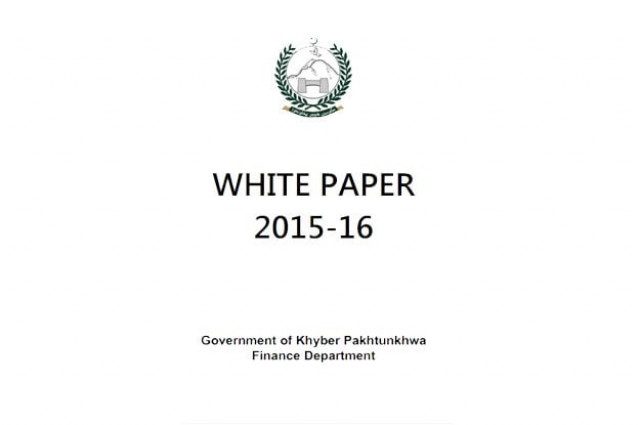Swept under the carpet: Social development, gender equality put on the backburner
Overview of the document provides positive, negative indications.

Overview of the document provides positive, negative indications. PHOTO: insaf.pk
This year, the Khyber-Pakhtunkhwa government has published a booklet titled ‘Citizen Budget’ to explain in simple terms how the budget will impact the lives of ordinary people.
This document provides an opportunity to connect budgetary numbers with citizens. According to the booklet, the budget reflects the government’s broader goals. These include an accountable and efficient government, a high standard of education at schools, colleges and universities, adequate healthcare services and poverty alleviation. Such goals suggest the government is fully aware of the problems faced by its citizens.
Pros and cons
An overview of the proposed budget provides both positive and negative indications. Budget documents show allocations for district governments, discussions on provincial finance commission, a strong focus on public employment and an increase in non-development allocations for population welfare which can be classified as gender-sensitive steps.
However, the budget gives limited importance to elementary education, health and public order and safety affairs.
All these categories have gender-sensitive implications as well. For instance, the allocations for gender-sensitive sectors such as elementary education and health do not present a rosy picture. Although there is an increase of 17.7% in nominal outlays for elementary education under the welfare budget, the share of elementary education has been reduced from 35% in 2014-15 to 34% in 2015-16 in total welfare budget.
Similarly, the share of health has declined from 13.3% in the previous budget to 11.6% in the 2015-16 budget. As a result, these sectors will fall behind in non-development priorities and will in turn have welfare implications not only for individuals and households but for the province as a whole.
Moreover, the thrust of the budgets for these sectors is on the payment of salaries. For instance, over 90% of the elementary education budget is allocated towards salaries.
Within the elementary and secondary education sector, the focus is on secondary education rather than primary education. Given that the net enrolment rate in primary education is below 60% in the province, failing to prioritise primary education is likely to have a negative impact on achieving a high standard of primary education.
Dismal state
The development expenditures in these sectors also paint a dismal picture. The share of elementary education has declined from 21% of the development expenditure (excluding foreign grants) in 2014-15 to a meagre 11.3%. Similarly, shares of health expenditure have declined from 10% in 2014-15 to 8.8% in 2015-16. These allocations are insufficient to meet the growing demand for an educated population and workforce.
Law and order
Over the years, K-P has been adversely affected province by militancy. This was recognised in the 7th NFC Award, which earmarked 1% of the total divisible pool on war on terror translating into additional resources of over Rs30 billion in 2015-16. However, this year’s budget has allocated only Rs32 billion for police, which is 2% less when compared to revised estimate of 2014-15.
A question of priorities
Over 87% of this budget is allocated for the payment of salaries. The reliance on human resources without allocating a significant amount for non-salary expenditure is inappropriate to protect life and property of citizens.
Finally, the white paper for the budget discusses the empowerment of women at length but allocations are insufficient. A look into budgetary magnitudes provided in white paper reveals that no allocation has been made for the Provincial Commission on the Status of Women.
(This writer is a principal economist with the Social Policy and Development Centre)
Published in The Express Tribune, June 16th, 2015.












COMMENTS
Comments are moderated and generally will be posted if they are on-topic and not abusive.
For more information, please see our Comments FAQ